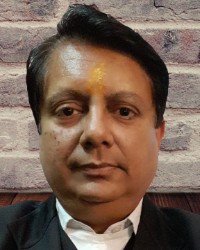COURT MARRIAGE
As per Article 21 of the Constitution of India, under “Right to Life”, every citizen has the right to marry their partner irrespective of caste, sex or religion. Post tying the knot every couple wants to be called as husband and wife and there arises a need for registration of marriage to obtain social and legal status. To suffice this needs marriage shall be registered under the applicable Act.
A marriage solemnized between male and female in court in front of the Marriage Officer and in the presence of 3 (three) witnesses . No Customary celebration or any other rituals are required to fulfill the formalities of Court Marriage. Court Marriage is in accordance with the Special Marriage Act, 1954. Court marriage is the most feasible way of solemnizing marriage irrespective of the nationalities.
PRE-REQUISITES OF MARRIAGE
Few conditions need to be fulfilled before proceeding with Court Marriage. Rules are given under Section 4 of the Special Marriage Act as well. Couple needs to meet the essential conditions prescribed in the Act before mutually signing the marriage contract. The conditions are as follows:
- No Prior Marriage- Either Partner shall not be married prior to this unless the previous spouse is not living or divorce has been obtained from the previous spouse.
- Valid Consent- Couple shall sign the contract as per their free will, i.e. they should not be incompetent of giving valid consent due to unsound mind or any other factor.
- Age- Couple must be eligible to conduct court marriage. Marriage age as prescribed by applicable Acts for a boy and girl is 21 yrs.
- Prohibited degrees of Relationship- Parties should not be connected to each other through any relationship mentioned in Schedule 1 of the Special Marriage Act.
REQUISITE DOCUMENTS FOR COURT MARRIAGE
Certain documents are required for completing the legal marriage process in the court without which marriage cannot be registered in India. Both bride and groom are required to submit few documents to proceed registration of marriage:
- Marriage application signed by both parties
- Verified proof of fees paid for the application
- Residential and address proof
- Affidavit from both mentioning date of birth, marital status, parties are not related to each other within prohibited degrees of relationship, 2 passport size photographs
For Witness:
- Passport size photo
- PAN Card
- Identity Proof
PROCEDURE FOR REGISTRATION
Step 1: Notice of Intended Marriage
The first and foremost step of registering marriage is acquiring notice regarding intention of registering marriage. Any one party has to send a written notice mandatorily as per section 5 of Special Marriage Act to the marriage registrar showing the intention of the parties to marry each other 30 days prior to marriage
Step 2: Publishing of Notice
The notice which is sent to the marriage registrar shall be published by the officer by affixing it to a place in his office which is clearly visible while retaining the original copy in his notice book.
Step 3: Objection to Marriage
Section 7 of the Special Marriage Act mentions that any person who has an objection to the marriage so intended to be registered can raise objection within 30 days from the date of publication of the notice. If the marriage registrar discovers that the objection raised is correct, then he/she will cease the process of registration. But in case the objection is unjustified, then he/she will proceed with the registration procedure.
Step 4: Declaration by Parties and Witnesses
Before the Court Marriage is finalized, the form has to be signed by the parties along with three witnesses declaring that the parties are marrying each other with free consent. The declaration form has to be signed in the presence of the marriage registrar.
Step 5: Place and Form of Solemnization
Section 12 of the Special Marriage Act mentions that the registration of Court Marriage shall take place at the office of the registrar or any other place at a reasonable distance.
Step 6: Procedure for Marriage Certificate
Once the solemnization of the marriage takes place according to the laws of Court Marriage, the registrar enters the details of the marriage, in the marriage certificate according to the Schedule IV of the Special Marriage Act.
Need Help?
Get assistance from our support team in finding the right lawyer
FAQs On Marriage Under Special Marriage Act
How Lead India Can Help You:
a) Trustworthy & Confidential - We assure you that all your personal details & documents must be kept private. We never share these details with anyone.
b) Expert Advice -. We have the most experienced & provide you with the best guidance regarding the service.
c) Zero Stress - The Parties do not have to worry about the paperwork & complex process at the court. Our Associate will perform all these actions at the court.
d) Top Quality Lawyers - Lead India will help you to choose among the best lawyers to provide the service. There are different associates who work with us, you can choose a lawyer depending upon their practice area, experience & user rating.
e) Track Your Case - We provide you the opportunity to track your cases from the online dashboard. You can easily track your case status, payment status, etc.



